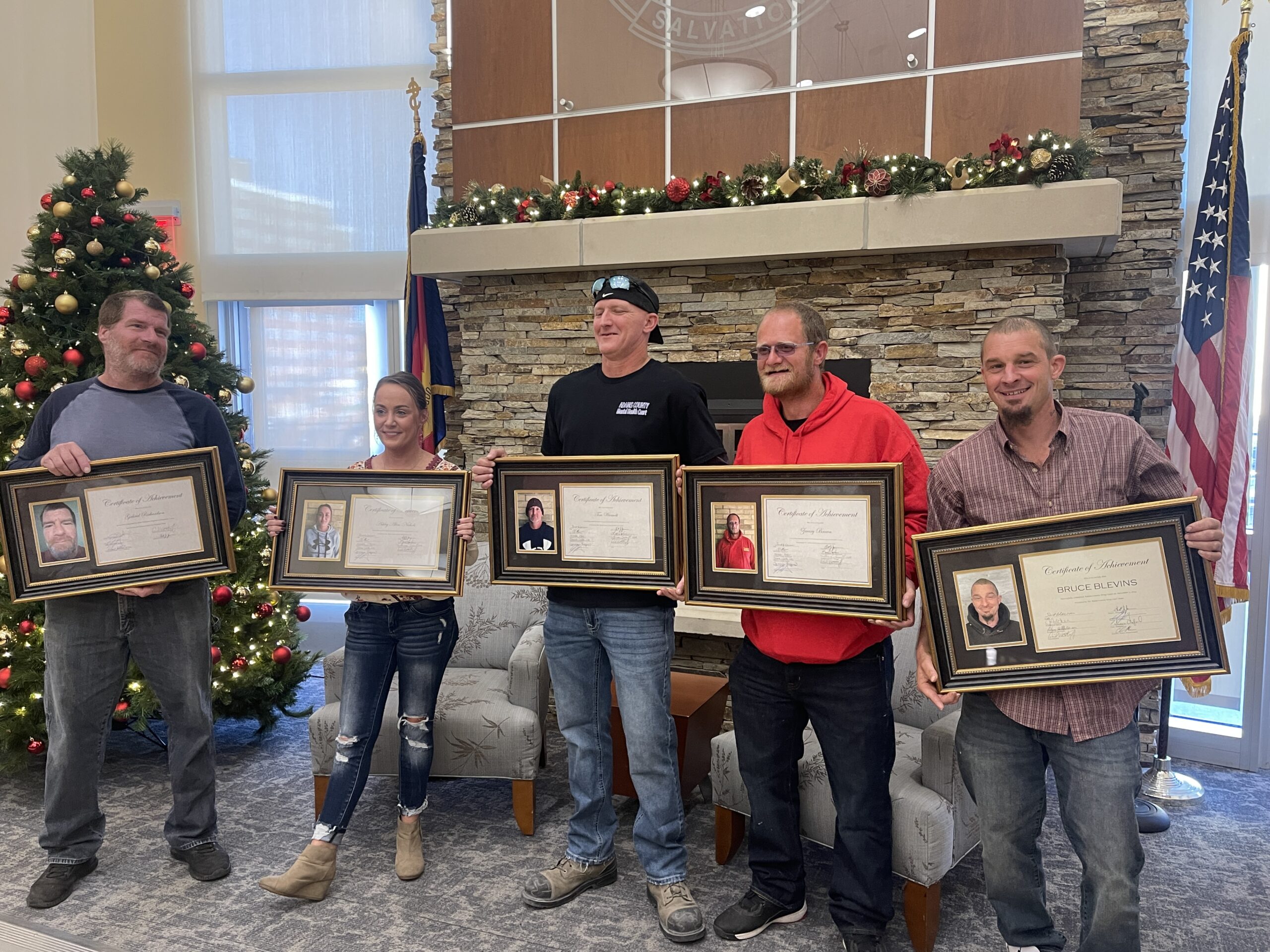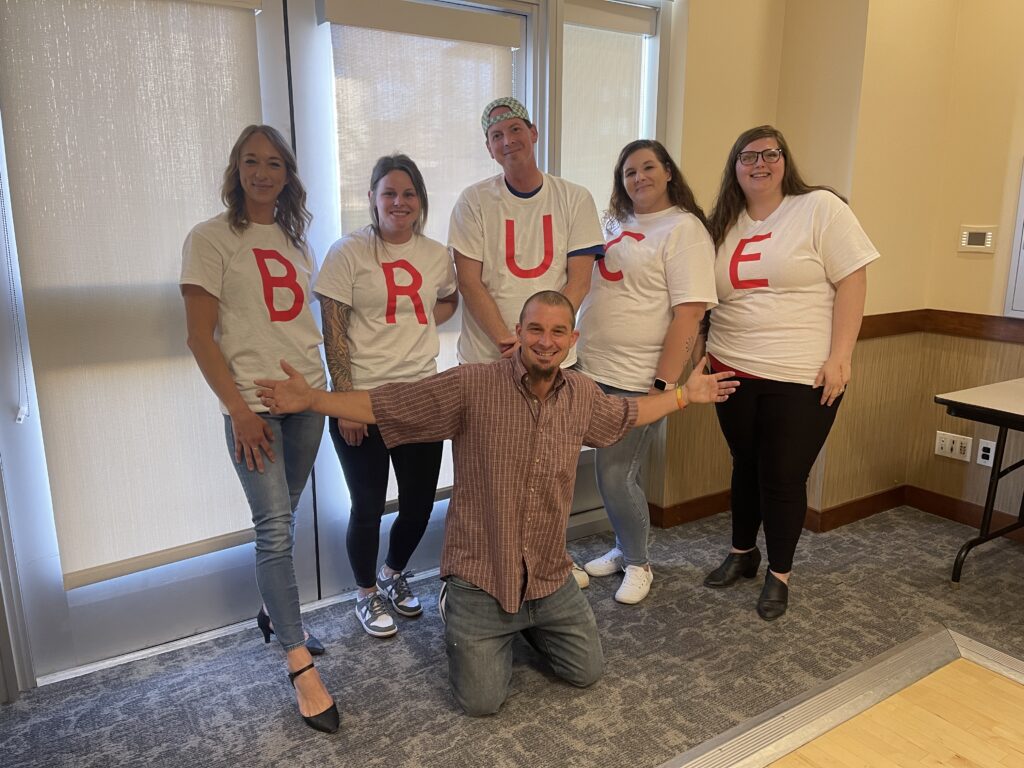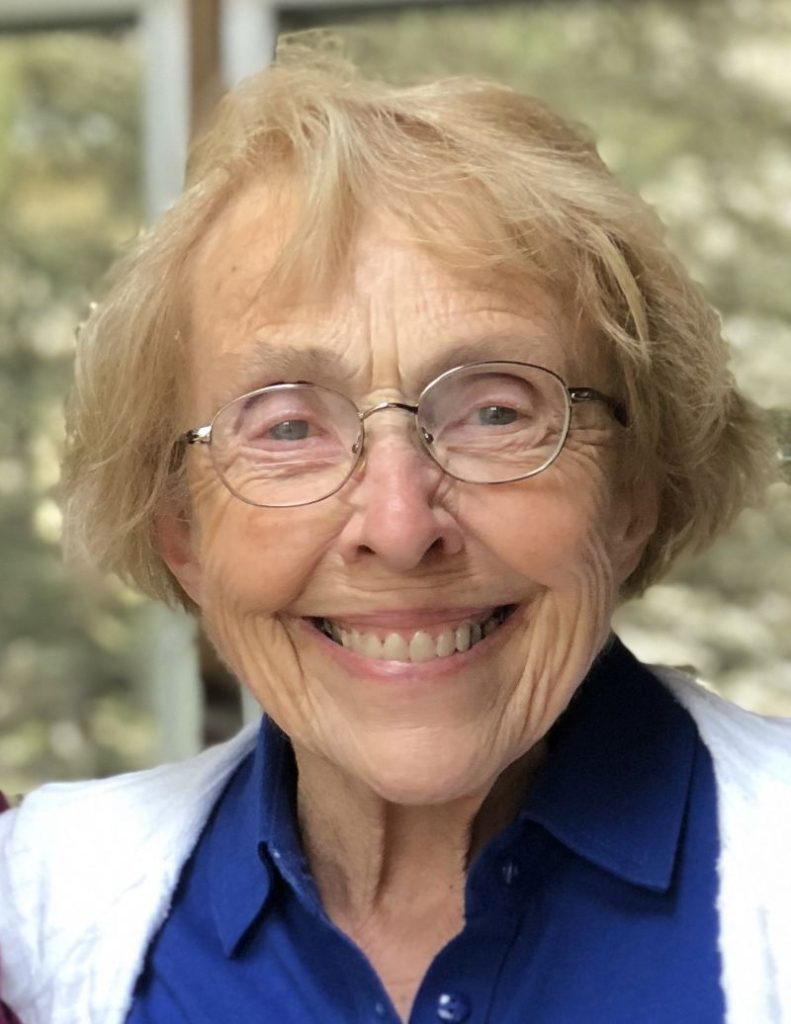‘My life has become a life worth living’: Latest Problem-Solving Court graduates celebrate their accomplishments

QUINCY — The energy of the Meadows conference room at the Quincy Kroc Center was boisterously joyful on Thursday afternoon, as dozens of guests gathered to celebrate the sobriety, resilience and tenacity of the Adams County Problem-Solving Court’s latest graduates:
- Bruce Blevins;
- Zac Brown;
- Tim Wiemelt;
- Ashley Allen-Nichols;
- and Gabriel Richardson.
Several prominent community leaders were in attendance: Mayor Mike Troup, police Chief Adam Yates, circuit clerk Lori Geschwandner and the newly elected State’s Attorney, Todd Eyler.
The amount of support in the room was made evident as the crowd reacted to each graduates’ list of accomplishments that they’ve achieved during their time in the program.
“(Bruce Blevins) has abstained from alcohol and drugs for 229 days,” said J.R. Fischer, the Drug Court probation officer, before the room filled with a cacophony of congratulatory shouts and claps.
Among the attendees were Blevins’s fiance, Jennifer Diaz, and the eight-month-old baby the couple shares — a baby girl named Naomi, who Blevins said motivated him throughout his journey.
“(The birth of Naomi) really helped a lot (to) really slow me down and take a look at myself and what I want out of life — of who I want to become and where I want to be,” he said.
Blevins had been plagued by drug addiction for over 20 years by the time he entered the program last summer. His life was “chaotic” before, spending most of his time “running the streets or in jail.” The last time he sat in jail — the result of his third possession charge within a year — was when he decided to make a change.

Roughly a year and a half later, he stood in front of his family and friends as the 133rd graduate of Drug Court, sharing the good news of the evolution he’d undergone.
“My life has become worth living. I have a full-time job, a house, my driver’s license, a truck. I pay my bills and my child support. I try to be in my kids’ lives as much as I can,” he said. “I wake up every day and try to be the best version of me.”
There are three sub-courts of Problem-Solving Court: Drug Court, established in 2006, which focuses on treatment and recovery; Mental Health Court, established in 2017; and RISE (an acronym for Reinforcing behaviors, Individualized case plans, Skill building and Engagement) Court, established in 2018 through a grant from Adult Redeploy Illinois (ARI), which was created as part of the Crime Reduction Act. ARI increases alternatives to incarceration for non-violent offenders.
“The individuals sentenced to a Problem-Solving Court receive a higher level of supervision compared to a regular probation term. Individuals are required to meet with their officer multiple times per week and submit to numerous amounts of drug testing,” said Justin Brock, the RISE Court probation officer, in an email.
According to All Rise, a non-profit organization advocating for justice system reform that emphasizes the intersection of substance abuse and mental health, treatment courts are a “public health approach to justice reform in which treatment providers ensure individuals before the courts receive personalized, evidence-based treatment, and they work as a team with law enforcement, community supervision, defense, prosecution, and the judge to provide ongoing support and recovery services.”
Prior to entering Mental Health Court, Allen-Nichols felt “lost and broken, and didn’t know how (she) could ever pick (herself) up again.” Since then, she’s gotten married, is coming up on two years of sobriety and is now one of the program’s latest graduates.
“I’m proud of the woman that I am today,” she said. “I’ve overcome so many obstacles and I continue to grow more every single day.”
Allen-Nichols thanked her oldest son, who was in attendance, for allowing her back into his life.
“I know forgiveness is a hard thing to do, and it means the world to me that I get to be your mom again. I will not let you down again.”
She also apologized to her mother for the pain she’d caused her during her battle with addiction.
“I hope your life is more peaceful now that I’m in a better place, because that is all I ever want for you.”
Lastly, she gave a hopeful message of encouragement to those in the audience who were still moving through the program themselves.
“Just remember to keep your head up,” she said. “You can do anything you put your mind to.”
Miss Clipping Out Stories to Save for Later?
Click the Purchase Story button below to order a print of this story. We will print it for you on matte photo paper to keep forever.

